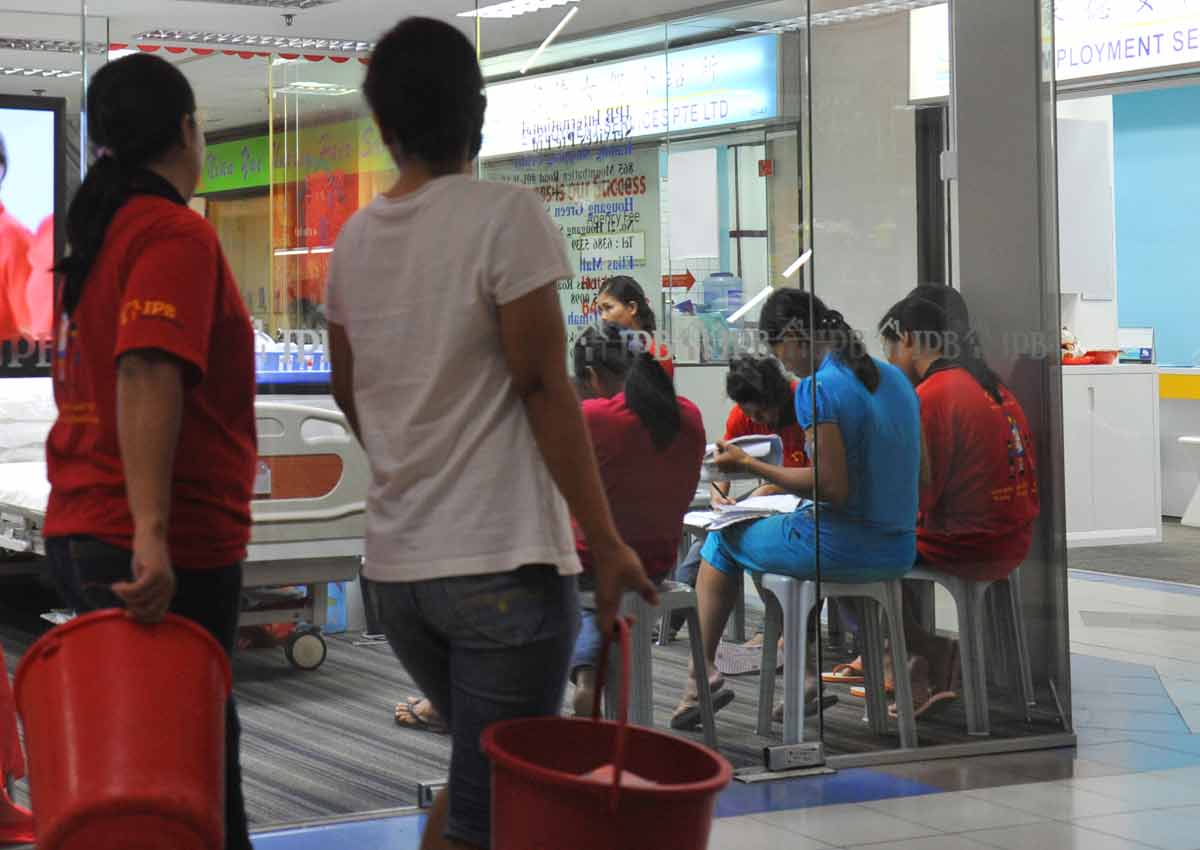Some employment agencies that recruit and place maids here charge them and their employers fees without specifying what exactly the fees cover.
Two migrant worker groups are calling for greater transparency through the used of itemised bills, saying that it can go some way towards preventing overcharging.
The Centre for Domestic Employees (CDE) said yesterday that it has been working with employment agency associations on a template of itemised bills, and proposed that the Ministry of Manpower (MOM) include transparency among criteria for its future grading scheme for employment agencies.
Separately, Transient Workers Count Too (TWC2) is recommending, in a report being released this week, that Singapore should consider making it mandatory for employers, maids and agents both here and in the source country to sign a document setting out itemised expenses during recruitment and the terms for paying them. Maids should produce this document when applying for a work visa.
The non-governmental organisation found that while maids’ placement fees have dropped in recent years, they usually still have almost five months of pay deducted to pay off the fees.
The researchers found that such salary deductions have fallen from an average of 7.2 months for women arriving in Singapore in 2010, to 4.7 months for those arriving last year.
The TWC2 report details the findings of a survey conducted in January and February of more than 230 maids from the Philippines, Indonesia, Myanmar, India and Bangladesh.
In 2011, the MOM introduced a rule limiting the placement fees employment agencies can charge to a maximum of two months of a worker’s salary.
Recruiters in the maids’ home countries are also subject to local rules on such fees, which are about $650 in the Philippines and $1,400 in Indonesia, the report said.
But the survey found that more than 60 per cent of women who came from the Philippines in 2014 or later and more than 40 per cent of those who came from Indonesia were still over-paying. Myanmar workers surveyed tended to pay the most – an average of $2,721. Filipinas and Indonesian workers paid $2,231 and $2,476 on average respectively.
Meanwhile the CDE, which is run by the National Trades Union Congress, said it found through speaking with embassies, agencies and recruiters that the overall cost of recruiting a maid from Indonesia is normally about $3,800 to $5,800. This includes recruitment and training costs of $2,500 to $3,300.
For Filipino maids, the overall cost usually ranges from $3,100 to $4,600, including recruitment and training costs of about $1,200 to $1,800.
The CDE said itemised bills will make it easier to determine if the costs are fair, if they should be reduced, and how best to share costs between employers and workers.
With greater transparency, “employers and (workers) would be able to make a more informed decision before they enter into an employment contract and disputes relating to it can also be reduced,” it said.
It proposed that the MOM include transparency of costs as one of the criteria in the Trustmark Grading Scheme for employment agencies that is expected to be launched in the second half of next year.
An MOM spokesman said the ministry has seen “very few cases” of maids being overcharged by local agencies, though MOM is not able to regulate the fees charged in workers’ home countries.
Employment agencies here have to issue maids a written and itemised receipt for all fees charged, including fees collected on behalf of overseas agents, the spokesman added.
The fees charged by the Singapore agent are also stated in the In-Principle Approval letter, which is in the native language of a prospective worker and sent to her before she leaves her country.
There were some 237,100 foreign domestic workers here as of June.
joseow@sph.com.sg

This article was first published on Oct 30, 2016.
Get a copy of The Straits Times or go to straitstimes.com for more stories.






